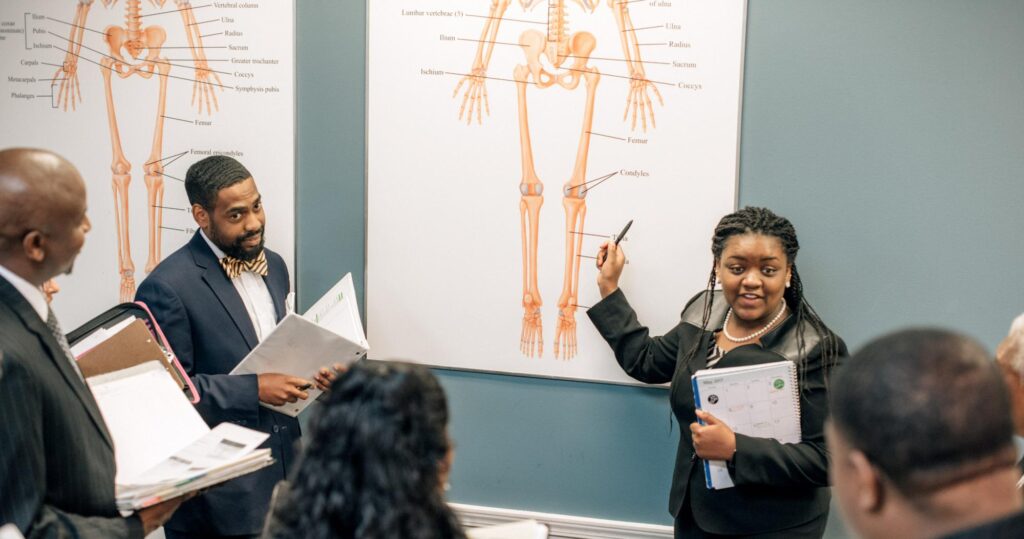Preparation for Clinical Success
Professional Standards: Maintain impeccable appearance and punctuality. Clinical sites expect student behavior that reflects the dignity and professionalism required in funeral service. Dress conservatively in business attire and arrive early to demonstrate commitment.
Required Documentation: Ensure all paperwork is complete before starting rotations, including background checks, health screenings, liability insurance, and confidentiality agreements. Missing documentation can delay or prevent clinical participation.
Mental Preparation: Understand that clinical experiences involve real families experiencing grief and loss. Prepare emotionally for challenging situations while maintaining appropriate professional boundaries.
Building Professional Relationships
Mentor Relationships: Your clinical supervisor serves as your professional mentor. Show respect, ask thoughtful questions, and demonstrate eagerness to learn. These relationships often extend beyond graduation, providing career guidance and job opportunities.
Staff Interactions: Treat all funeral home staff with courtesy and respect. From funeral directors to administrative personnel, each team member contributes valuable knowledge and perspectives to your education.
Networking Opportunities: Clinical sites provide access to funeral service professionals, vendors, and community members. Build genuine relationships that can support your career development.
Maximizing Hands-On Learning
Active Participation: Volunteer for tasks and procedures whenever appropriate. Observe embalming processes closely, participate in arrangement conferences when invited, and assist with service coordination to gain comprehensive experience.
Question and Learn: Ask specific questions about procedures, regulations, and business practices. Experienced professionals appreciate students who show genuine interest and intellectual curiosity.
Skill Development: Practice essential skills including arrangement conference techniques, embalming procedures, and grief support conversations. Seek feedback regularly to improve your performance.
Professional Development Opportunities
Continuing Education: Attend any workshops, seminars, or professional meetings offered during your clinical rotation. These events provide additional learning and networking opportunities.
Documentation and Reflection: Maintain detailed logs of clinical experiences, including specific procedures observed, skills practiced, and professional insights gained. Regular reflection enhances learning retention.
Overcoming Common Challenges
Initial Nervousness: Feeling anxious about clinical work is normal. Focus on learning objectives, prepare thoroughly, and remember that experienced staff expect and support student development.
Difficult Situations: You may encounter challenging family situations or emotional services. Maintain professionalism while processing experiences through supervision and peer discussion.
Transitioning to Employment
Many funeral homes hire students they’ve trained during clinical rotations. Demonstrate reliability, competence, and cultural fit to position yourself for employment opportunities. Express genuine interest in the facility and its mission.
Portfolio Development: Document your clinical experiences, skills acquired, and professional growth throughout rotations. This portfolio demonstrates competency to potential employers and licensing boards.
Clinical training transforms mortuary science students into competent professionals ready to serve grieving families with skill and compassion. Approach these experiences with dedication, professionalism, and openness to learning for maximum benefit.
